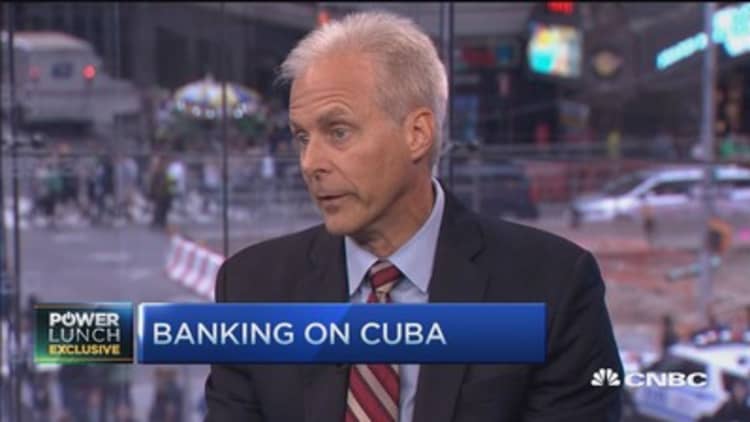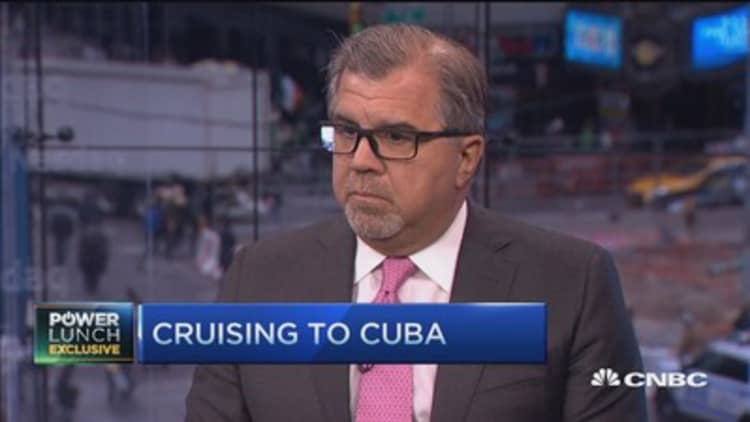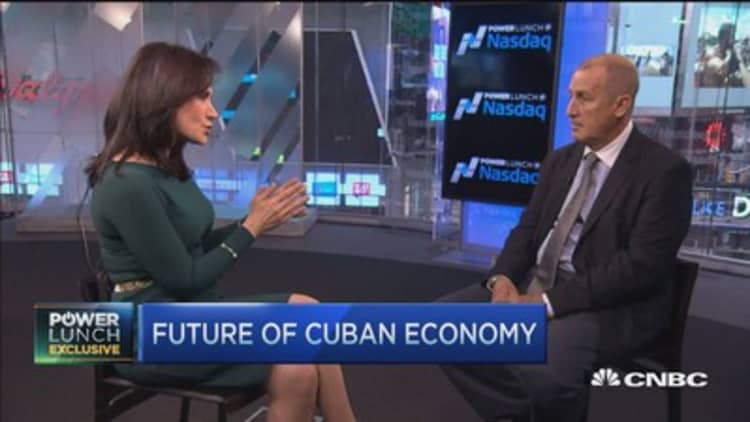


Despite softening in Cuban-American relations, policies remain tepid and hurdles impede eager investors who seek to crack the new market. Still, many remain optimistic as President Barack Obama sets out for the island in less than a week.
"It's the old prodigal son coming home; I'll be on that bridge, I might even be driving that ship myself," kidded a hopeful Frank Del Rio, who thinks relations will continue easing. The Cuban-born Norwegian Cruise Lines CEO, is one of the many businessmen who look to bring business to Havana; but, despite diplomatic efforts from the U.S., the Cuban embargo remains in place, an onerous issue for American companies.
In this line, news emerged Thursday that the U.S. government removed Cuban ports from its security list.
"Sooner or later the embargo has got to go for the tourism industry in Cuba to really flourish," Del Rio told "Power Lunch." "Even with all the changes that executive orders have, its travel that's allowed — not tourism, and there's a big distinction."
While many call for Congress to lift the embargo, the Cuban government is heavily criticized for its internal undemocratic restrictions. In addition, some remain dissatisfied that the American effort is not reciprocated by Cuba.
Beyond U.S. policies, the Cuban tourism sector remains challenged by scanty financial institutions in Cuba. The lack of financial services may soon be changing as American company Stonegate Bank now offers banking services for Cuban officials in the U.S. and conversely offers debit cards that work in Cuba. Although these services are not necessarily directed to the Cuban people, it raises the question of whether Cubans will have access to credit cards in the near future.
The Florida-based bank has issued fewer than 100 cards, but Dave Seleski, the bank's CEO foresees a boon amid eased travel restrictions.
"The Cubans had been for 15 months — about banking services — operating on a cash-only basis," Seleski said. "It was a big issue; it was holding up the talks for starting an embassy."
Many Americans continue to question whether their businesses would be welcomed in the island, and according to University of Havana economics professor Juan Triana, the country is looking forward to it.
"The Cuban government wants investments from every country," he said. "We are changing, both countries are changing; today is different than three years ago."
As business expands in a socialist Cuba, the expert foresees that Cuba will open up more markets beyond its booming micro and medium-size enterprise sector. The Cuban private sector saw a boom in 2010 when the government began to license entrepreneurs. Since then, the island has seen microenterprises increase from 150,000 to more than 500,000.
Triana's comments, however, raise the million-dollar question: Will Cuban socialism come to an end as a result of a new business model? Still, the Cuban economists refutes the downfall of Cuban socialism.
The philosophy of Triana's statement stem from the rhetoric Fidel Castro adopted during the Special Period, the extended economic crisis that came after the fall of the Soviet Union. During this time, the Cuban government set out its long-term process of "adjusting" but with no changing its economic model in fundamental ways. It's a philosophy that is still alive today.
"We have to build a new socialism with a market and a planning economy at the same time," Triana said.



